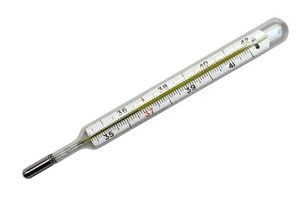Doc, does baby teething cause fever and diarrhoea?

Most babies begin teething at six months of age, and will have all their milk teeth by the age of three years.
What you need to know:
- Teething may have no symptoms, or there may be symptoms as the particular tooth is erupting. Common symptoms include irritability, increased drooling, chewing on objects and sore gums
Dear doctor,
At what age do babies start teething? Is it true that the baby will get fever and diarrhoea, and is there any way to prevent that? How are baby teeth cleaned? Michael
Dear Michael,
Teething tends to vary from child to child, with some babies being born with teeth, and some getting their first tooth at 12 months of age. However, most babies begin teething at six months of age, and will have all their milk teeth by the age of three years.
Teething is a process that takes many months as the different teeth erupt. The first teeth to erupt are usually the front bottom teeth (the lower central incisors) followed by the upper front teeth (upper central incisors). Teething may have no symptoms, or there may be symptoms as the particular tooth is erupting. Common symptoms include irritability, increased drooling, chewing on objects and sore gums. Sometimes the baby may get a low grade fever, and changes in the sleeping patterns. If the baby has a high fever or diarrhoea, this is likely to be from another cause, which should be identified and treated. The association between teething and diarrhoea may be because the baby may put dirty objects in the mouth, which may cause infection.
Some tips to soothe a teething baby are:
■ Massage the baby’s gums with a clean finger, or using a cold damp wash-cloth
■ Give the baby a clean rubber teething toy, which may be a teething ring, a pacifier, a wash cloth or a spoon. The teething toy can be cooled in the fridge, but should not be frozen. Avoid teething rings that are made of breakable plastic, or those that have liquid inside because they can leak. Also, avoid tying teething toys around the baby’s neck as this is a choking hazard.
■ For babies who are six months and above, giving water in a feeding bottle may also be soothing.
■ If the baby is old enough to take solid foods, you can give some hard foods to chew on such as carrots or cucumbers. But you have to monitor the baby closely so that they do not choke.
■ Use a bib or cloth to dry off the drool. Drooling can lead to development of a rash under the chin, on the neck and around the mouth
■ You can use pain relieving medication, as necessary, as prescribed by a health professional. Avoid teething gels and herbal preparations.
Before the teeth erupt, clean the baby’s mouth with a damp wash cloth once or twice a day. Once the teeth come out, clean the mouth and the teeth with a damp wash cloth at least twice a day, after meals. Avoid the baby sleeping with milk or juice pooled in the mouth as it can cause tooth decay. After the baby turns one-year-old, you can use a soft toothbrush, water and a little toothpaste to clean the teeth. The baby should have their first dental visit when the first tooth appears or before their first birthday.
Sometimes I start itching when I eat proteins. How can I avoid this, especially during this season when there is a lot of feasting? Jim
Dear Jim,
With a protein allergy, the immune system reacts strongly to a particular protein, and this can cause a rash, itching and inflammation. This can cause swelling of the face or lips; itchy eyes; itchy nose; or abdominal pain, bloating or diarrhoea due to inflammation along the alimentary canal. Sometimes the allergic reaction can be so severe that it becomes life threatening, and requires emergency intervention. Having allergies is usually determined by an individual’s genetic make-up, and a person may have one or several allergic conditions. Allergy testing can help you identify what the specific triggers are for the allergic reactions that you experience.
The protein allergy may not be cured, but you can manage it by avoiding the potential triggers. If the allergic reaction is mild, you can take small amounts of protein and use anti-allergy medication to prevent/manage the reaction.
Is there a cure for dandruff? I have had it for a log long time. Hellen
Dear Hellen,
Dandruff refers to having flakes of dry skin on the scalp, and itching of the skin. It is a mild form of seborrheic dermatitis, where the skin is inflamed/irritated and oily patches are formed on the skin. Some factors that can contribute to dandruff include build up of skin cells and dirt due to infrequent washing, or from the skin being excessively dried out. It may also be as a result of fungal infection of the scalp, or from skin irritation by hair products. The skin may also be irritated by brushing hair too forcefully, or pressure from hats. Nutrient deficiencies can also contribute to developing dandruff. It is also more common in individuals with some nerve problems or if the immune system is weakened.
Dandruff usually lasts for a long time, but it can be managed. Wash your hair and scalp with a mild shampoo. Eat a healthy and balanced diet, and take adequate amounts of water. Avoid staying in the sun for too long, scratching the scalp and harsh hair products.
It is also advisable for you to be reviewed by a skin specialist for examination of the skin. In case there is an underlying problem that is contributing to the dandruff, this will be treated.
Send your questions to [email protected]




